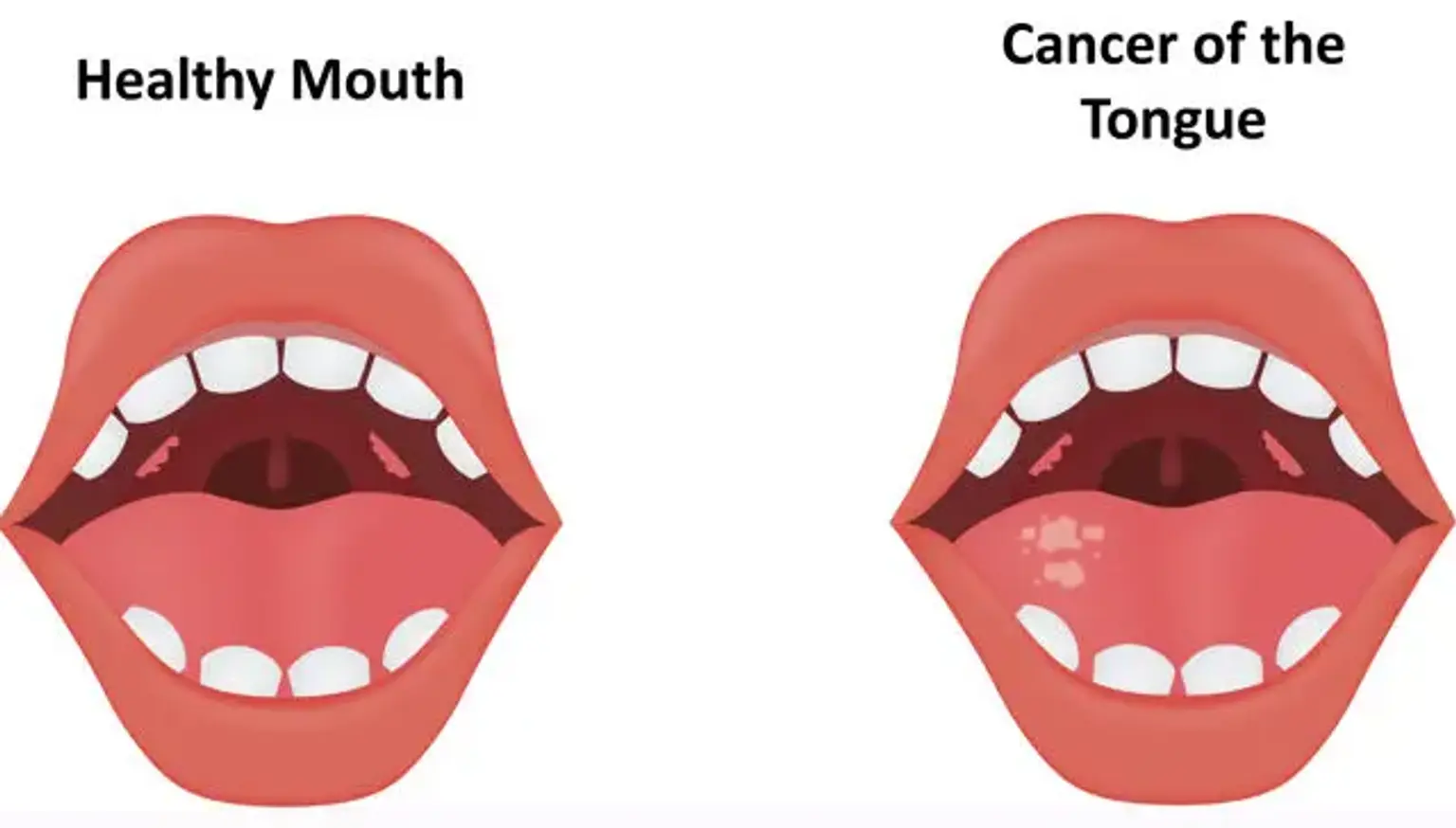Tongue Cancer
Tongue cancer is a form of mouth cancer (also known as oral cancer) that typically begins in the squamous cells on the tongue surface. It has the potential to cause lesions or tumors. The tongue sore, which does not resolve, and a painful tongue are the most visible signs associated with tongue cancer.
This cancer can appear in two areas of the tongue. Oral tongue cancer occurs at the front part of the tongue, whereas oropharyngeal cancer develops behind the tongue. The kind of cells associated with cancer often determines the treatment as well as the prognosis.
